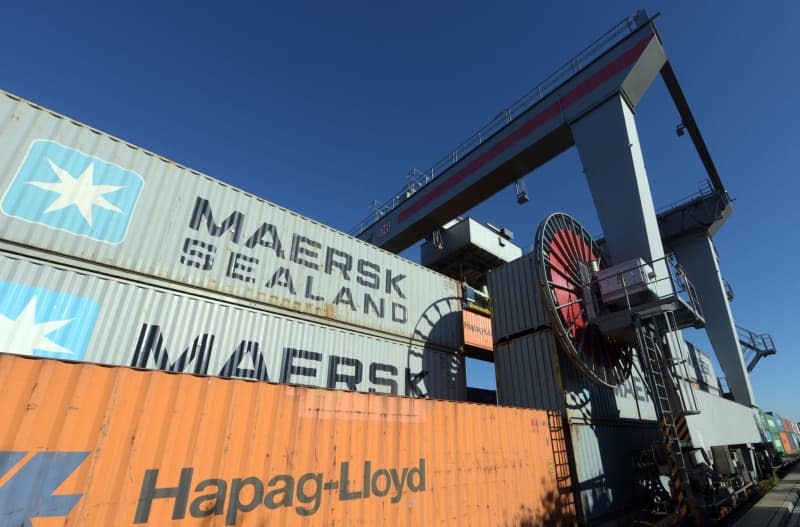Shipping giants Maersk and Hapag-Lloyd strike cooperation deal

Global shipping giants Hapag-Lloyd and Maersk have struck a partnership deal to operate some of their ships as a joint fleet in the future, the companies announced on Wednesday.
The Copenhagen-based Maersk and the Hamburg-based Hapag-Lloyd will launch the alliance, dubbed "Gemini Cooperation," in February 2025, the companies said.
Maersk and Hapag-Lloyd said the deal would allow them to make more punctual cargo deliveries for customers and overcome the challenges of a climate-neutral conversion of their large fleets of ships.
Maersk aims to achieve net zero greenhouse gas emissions by 2040, Hapag-Lloyd by 2045.
Both partners will give up their previous alliances with other shipping companies at the beginning of next year.
Next January, Hapag-Lloyd will leave its current alliance with Japanese shipping company ONE, Yang Ming from Taiwan and HMM from South Korea.
Maersk and China's MSC, the world's largest shipping company, had already announced last year that they would dissolve their "2M" alliance in January 2025.
According to shipping industry service Alphaliner, Denmark's Maersk is the world's second-largest container shipping company with a fleet of more than 670 ships. Germany's Hapag-Lloyd is in fifth place with just under 270 ships.
The joint Gemini Cooperation fleet will comprise a pool of around 290 ships with a combined capacity of 3.4 million standard containers (TEU), according to a joint press release announcing the deal.
Maersk will contribute 60% of the capacity, Hapag-Lloyd the remaining 40%.
Such alliances in the shipping industry have been controversial in the past, as shore-based cargo handling companies have expressed fears about greater market power for large shipping firms.
Some critics have lobbied the European Commission to impose tighter competition rules on such cooperation agreements.

